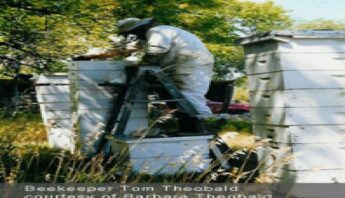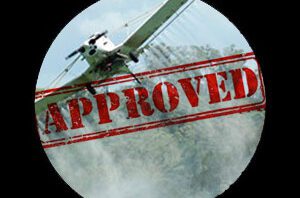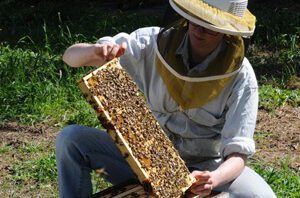Silent Spring turns 50 next week, giving occasion for all manner of reflection on Rachel Carson's legacy as the author who catalyzed the U.S. environmental movement. The small, but vocal rightwing fringe continues in its campaign to paint Carson as the devil "responsible for more deaths than Hitler." But most mainstream reflections thus far have sought to contemporize Carson by drawing links between the issues she outlined in Silent Spring and the concerns we still face today.
Claiming no special insight other than working daily in Carson's wake, I speculate that she'd be reporting in her way on one of these still-untold and/or under-reported pesticide stories:
1. Genetically engineered (GE) crops are the present-day growth engine of the global pesticide industry; and we know about as much about their health and environmental impacts as we did about DDT in 1962. Working title: "GMOs are DDT 2.0"
- Fact: 99% of GE crops on the market are engineered either to contain an insecticide, or to withstand high application rates of particular herbicides.
- Fact: Of the "hundreds" of studies that industry claims have proven the safety of GE crops, not one has been repeated.
2. We know very little about pesticide use patterns in the U.S. because, with the exception of California, use is not tracked. EPA has neither the funding nor the mandate to require applicators to report pesticide use, so what we are left with is spotty data aggregated at the national level and cut in such a way as to be nearly useless. Working title: "50 years later, still flying blind"
3. "Conditional registrations" are a regularly used loophole through which pesticide products are rushed to market without adequate safety testing where they remain in use for many years before being tested. Recent examples include Bayer's bee-toxic clothianidin, and DuPont's tree-killing Imprellis. Working title: some combination of "loop hole" and "Mack truck."
- Fact: Of the 16,000 current product registrations, 11,000 (68%) have been brought to market through conditional registration (CR), and half (5,400) of those have been conditionally registered since 2000.
4. Pesticide law and regulation in the U.S. is a case study in corporate capture. And always has been. The last 30 years of market consolidation in the seed and pesticide industry have not helped matters. Working title: "Chemical Cartel + Farm Lobby = 50 yrs of Pesticide Policy Paralyis."
- Fact: From 1988 to 1995, more than 65 bills were introduced in Congress to tighten pesticide regulations. None of them passed.
- Fact: In the late 1990s, two separate investigations revealed that between 1/2 and 2/3 of all former top-level pesticide regulators at the U.S. EPA subsequently went to work for, or were paid by, pesticide and chemical industry interests actively involved in fighting EPA efforts to protect the public from pesticides.
On this last issue, Christopher Bosso's Pesticides and Politics: The Lifecycle of a Public Issue (1987) remains the most comprehensive account of the political history of pesticide legislation and regulation. In it, he examines pesticides as a case study in special interest politics largely beholden to the farm lobby in Congress — all the way back to the 1947 formation of the Federal Insecticide, Fungicide, and Rodenticide Act (FIFRA). In political science, the term is "client politics."
Were Rachel Carson alive today, I suspect she would pick up one of these threads and weave a characteristically lyrical and detailed account that would arrive in the end at a penetrating analysis. Just as she confronted the paternalism of postwar science, and questioned the paradigm of scientific progress and mastery that defined postwar America, I imagine Carson would today name the most disabling dynamic of our times: corporations running roughshod over democracy.







